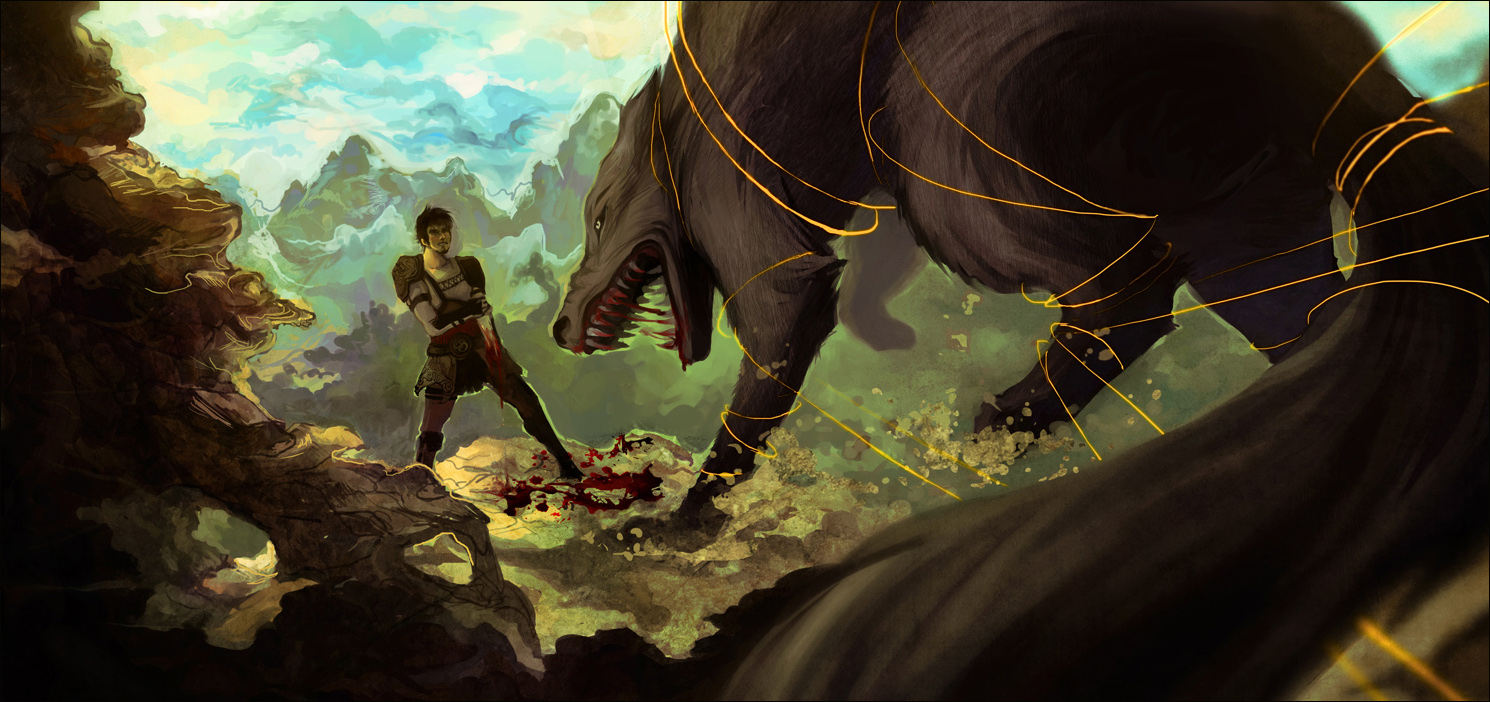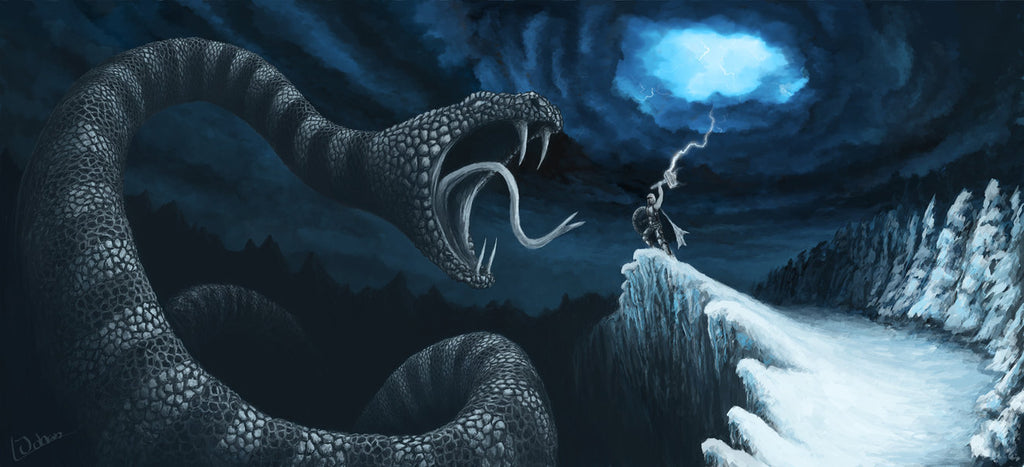Viking Gods of War
There was a list of gods that the Vikings respected and worshipped. But among those gods, gods of war were the most commonly mentioned. Many of the Vikings were the warriors who would devote their life to raiding and battling. Thereby, the Vikings focused the most on the gods of war as they believed their gods of war would help them win the battle to come back home with fame and fortune.
But who were the Gods of War in Norse mythology and to the Viking belief? As far as we have been researching, there were four gods of war: Odin, Thor, Tyr, and Freya.
Odin the Allfather
Odin was the Aesir chief god in Asgard and he was the ruler of the Holy Hall Valhalla in Asgard. Odin appeared in the myth with the image of an old man under a dark cloak and often wandered the world to acquire knowledge. He was the god of wisdom because Odin was willing to devote anything to trading for knowledge and wisdom. And yes, he wisely chose what and where to ventured his things.
The point that we should focus on in this version of Odin was that Odin presided over the Hall of the Fallen Warriors known as Valhalla. He hosted the brave human fallen warriors into his hall and dwelled with them until Ragnarok. Though Odin didn't himself take part in the battles, he was still known as the god of war for his power and the human army that he got. It was quite vague to understand this theory as one might wonder why a man hardly joining the battles was regarded as the god of war. But it was it. Odin was the god of war, but in a special aspect which we are not accustomed to. Odin was the god of war in the aspect of magic and mental forces. He could make his enemies blind, deaf, and even so terrified of war that they could not continue to fight.
Thor God of Thunder and Storm
Thor might be the most famous god in Norse mythology, even more famous than his father Odin. Thanks to the modern adaptations, Thor gained such popularity.
:origin()/pre00/c00f/th/pre/i/2015/131/e/6/thor_battling_jormungandr_by_unripehamadryad-d8szagi.jpg)
Thor and his sworn enemy
Thor was a hammer-wielding god who could strike lightning and thunder to terrify the enemies. He even used his Mjolnir hammer to smash his enemies. Being the product of the love affair between a god (Odin) and a giant (Jord), Thor was incredibly powerful. He was the Asgard god of war who defended not only the Aesir gods but also the ordinary human. His Mjolnir hammer was seen as a perfect talisman for the warriors to carry in battles. They believed that the Mjolnir hammer was Thor's presence and it would give them the strength and courage to fight with any enemies. With all the attributes that Thor possessed, he was a true Aesir god of war regarding the physical power and mental toughness.
Tyr God of Justice and Honor
Many sources claimed that Tyr was much more important and powerful than Odin as in the ancient time, Tyr was the main god of war. This theory, however, was not supported or totally agreed with. Anyway, Tyr was Law Keeper who would speak fairly regardless of social class or any being in the cosmos.

Fenrir and Tyr in the Binding of Fenrir
In the Binding of Fenrir, Tyr presented his qualities of being fair. Tyr volunteered to put his hand in the mouth of Fenrir as an oath. But as the gods went back on their words, Tyr did not withdraw his hand only to be bitten and swallow the hand by Fenrir. This was because Tyr felt ashamed for breaking their promise. In Norse myth, Tyr was also the god of war but in the aspect of the principles of justice and the legal decisions in the battles.
Freya the Goddess
Freya was a goddess who did not originate in Asgard, but rather in Vanaheim the land of Vanir god tribe. She was the goddess of love, sex, and jewelry.
But the other part of Freya would impress anyone who reads about her. She was a strong leader who presided over the holy land of Folkvangr. The Folkvangr was pretty similar to the Valhalla. As the fallen warriors had been chosen, they would be separated, half of them to Valhalla, the others to Folkvangr with Freya. Freya as a powerful woman warrior must have inspired the theory of Viking shieldmaidens. A goddess (woman) that could rival the power of a god (man) in combat was the way that the Norsemen respected the women in the ancient time, wasn't it?




